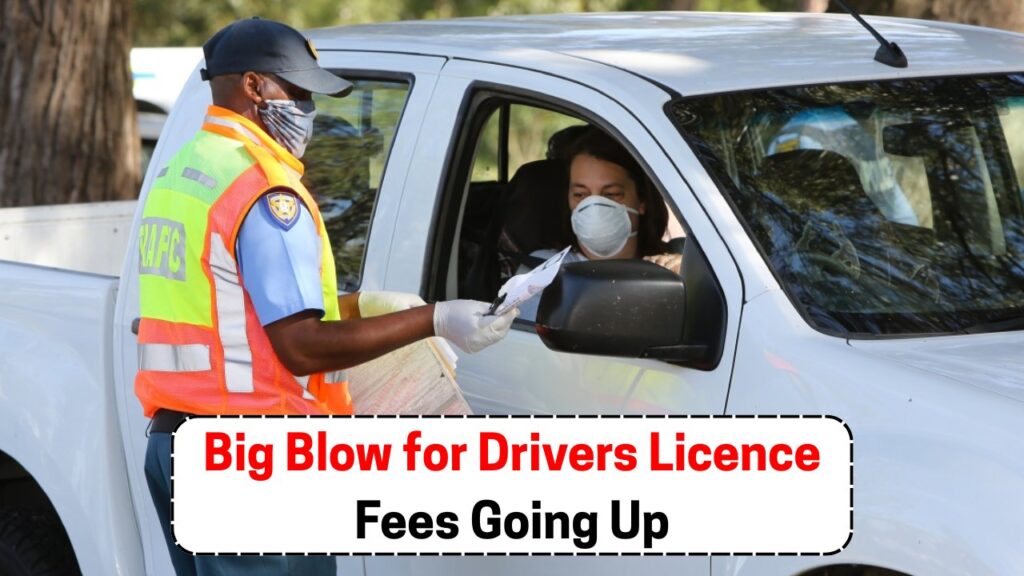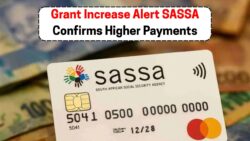2025 Licence Renewal Fees Hike: The announcement of increased licence renewal fees set for 2025 has generated significant debate among South African drivers, leading to widespread frustration and concern. Many motorists are expressing their displeasure over the higher costs, which they argue will place an additional financial burden on their already strained budgets. The government’s decision to raise these fees is seen by some as another example of how everyday expenses continue to climb, putting further pressure on the average South African. This increase comes at a time when many residents are grappling with rising living costs, making it a particularly contentious issue.

Understanding the Implications of the 2025 Licence Renewal Fees Increase
The impending increase in licence renewal fees for 2025 has left many South Africans questioning the rationale behind the decision and its broader implications. The fee hike is part of a broader strategy by the government to generate additional revenue, but it has sparked significant outcry from the public. For many motorists, the cost of maintaining a vehicle is already high, with expenses such as fuel, insurance, and maintenance adding up quickly. The added cost of higher renewal fees only exacerbates the financial strain on drivers. Moreover, there is concern about the potential impact on low-income individuals and families who may struggle to afford the new fees. This could lead to an increase in the number of unlicensed drivers on the roads, raising safety concerns. It’s essential to consider how these changes will affect not just individual drivers but also the broader transportation ecosystem in South Africa.
Public Reaction to the Licence Renewal Fee Hike in 2025
The public reaction to the 2025 licence renewal fee hike has been overwhelmingly negative, with many South Africans voicing their frustration through various channels. Social media platforms have become a hotbed for discussion, with hashtags trending as drivers share their stories and opinions. Many feel that the increase is unfair, especially considering the current economic climate where many are already struggling to make ends meet. The sentiment among motorists is one of anger and confusion, with questions being raised about the transparency of the fee-setting process and whether the funds will be used effectively. Some advocacy groups have begun to organize petitions urging the government to reconsider the decision, highlighting the importance of having a voice in such impactful decisions. The collective voice of South Africa’s drivers is louder than ever, demanding that their concerns be heard and addressed.
Potential Alternatives to the 2025 Licence Renewal Fee Increase
In light of the controversy surrounding the 2025 licence renewal fee increase, several potential alternatives have been proposed by various stakeholders. One suggestion is to implement a tiered fee system based on the type and age of the vehicle, allowing for more equitable distribution of costs. Another proposal is to increase government subsidies for public transportation, encouraging more people to utilize these services and thereby reducing the number of vehicles on the road. Additionally, some experts suggest looking into efficiency improvements within the Department of Transport to cut down on administrative costs, which could offset the need for a fee increase. Engaging in a public consultation process could also help the government gather input from motorists, ensuring that any changes reflect the needs and concerns of the population. Exploring these alternatives could lead to a more balanced approach that addresses the financial challenges faced by South African drivers.
Long-Term Effects of the Licence Renewal Fees Hike on South African Drivers
The long-term effects of the 2025 licence renewal fees hike are anticipated to be significant, impacting not only individual drivers but also the broader socio-economic landscape in South Africa. As costs rise, there may be a shift in consumer behavior, with some individuals opting to forgo vehicle ownership altogether in favor of alternative transportation methods. This could lead to increased demand for public transit, cycling, and ridesharing services. On the economic front, higher fees could deter new drivers from obtaining licences, potentially affecting industries reliant on a steady influx of new drivers, such as the transportation and logistics sectors. Additionally, there are concerns about increased traffic violations, as some drivers may choose to operate without a valid licence due to financial constraints. Over time, these changes could have a ripple effect, influencing everything from traffic patterns to urban planning and infrastructure development. It is crucial for policymakers to monitor these developments closely and adapt their strategies to mitigate any adverse outcomes.




